‘Polio Paul’ Alexander’s sad final days revealed as he battled COVID inside iron lung — before death at 78
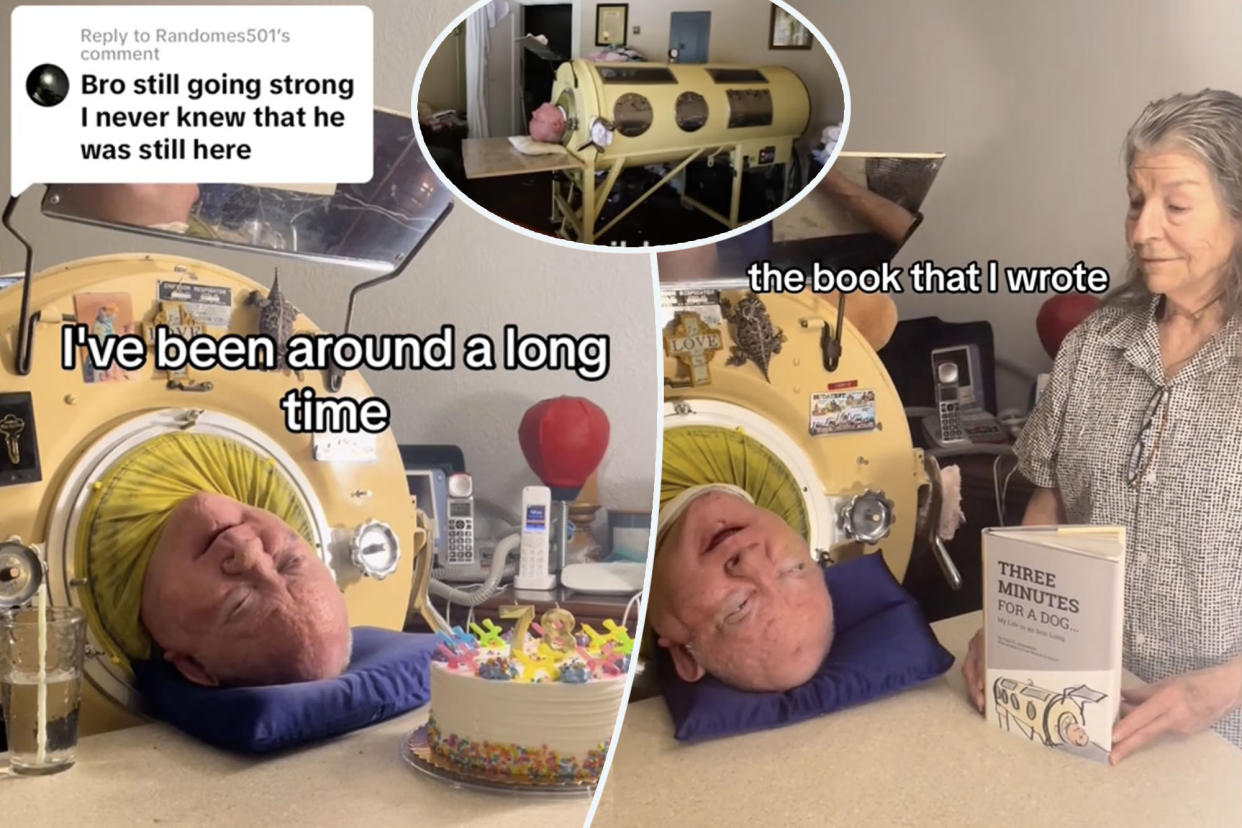
“Polio Paul” Alexander spent his final days battling COVID while struggling to eat and drink, his social media manager has revealed.
The polio survivor, famed for spending more than 70 years inside an iron lung, died Monday in Dallas, Texas, at the age of 78.
While an official cause of death hasn’t been publicly disclosed, Alexander was hospitalized late last month after contracting the coronavirus.
“Last week, he was unfortunately rushed to the emergency room,” his social media manager, known only as Lincoln, revealed in a TikTok posted on Feb. 26.
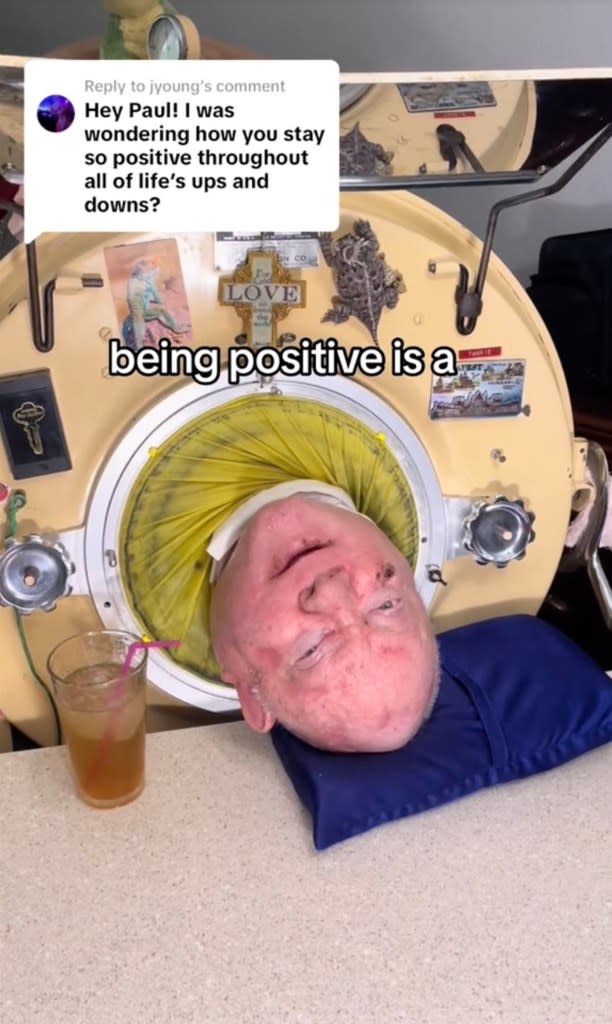
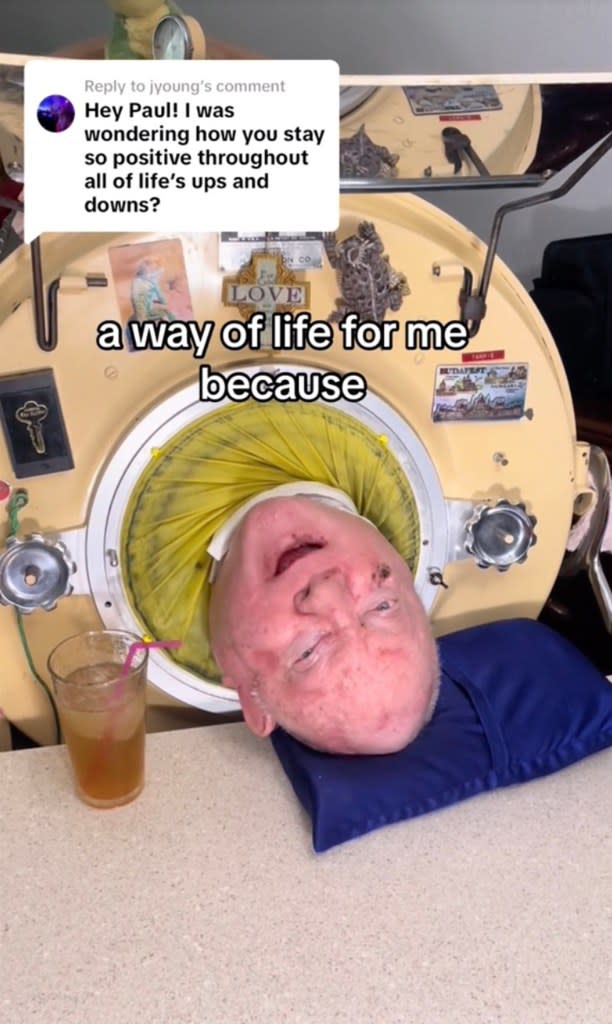
“In the hospital, he tested positive for COVID, which is really, really dangerous, obviously, for someone with his condition,” Lincoln continued. “Fortunately, they have an iron lung at the hospital just for him, and he was able to come home this weekend, but unfortunately he’s still kind of weak.”
He added that Alexander appeared somewhat confused and struggled to eat and drink.
While “Polio Paul” has been known to older Americans for many years, his TikTok page @ironlungman recently exposed him to a huge Gen Z audience.
Videos in which he discussed his illness and shared his optimism clocked tens of millions of views, inspiring many zoomers.
Thousands flocked to the page to pay tribute to Alexander upon his passing, including one who wrote: “Rest in peace Paul. You were extremely inspirational and you honestly helped me change my perspective on life. You really will be missed.”
Another devastated admirer penned: “You were the most inspirational person I have had the enjoyment of following. Forever fly high.”
Lincoln noted that the popularity of the TikTok account meant they were able to monetize a number of the viral videos, providing money for care in Alexander’s final days.

Meanwhile, Alexander’s brother, Philip, thanked people on Tuesday for donating to his GoFundMe.
More than $143,400 was raised for Alexander’s healthcare costs.
“I am so grateful to everybody who donated to my brother’s fundraiser,” Philip stated. “It allowed him to live his last few years stress-free. It will also pay for his funeral during this difficult time. It is absolutely incredible to read all the comments and know that so many people were inspired by Paul.”
The organizer of the fundraiser, Christopher Ulmer, set up the page years ago, claiming Alexander had been the victim of theft.
“He was taken advantage of by people who were supposed to care for his best interests,” he wrote at the time. “This theft, combined with the high cost of healthcare, has left Paul with little money to survive. He struggles to maintain his iron lung, afford healthcare and find housing that accommodates his needs. Paul lives in a small one-room apartment that does not have a window.”
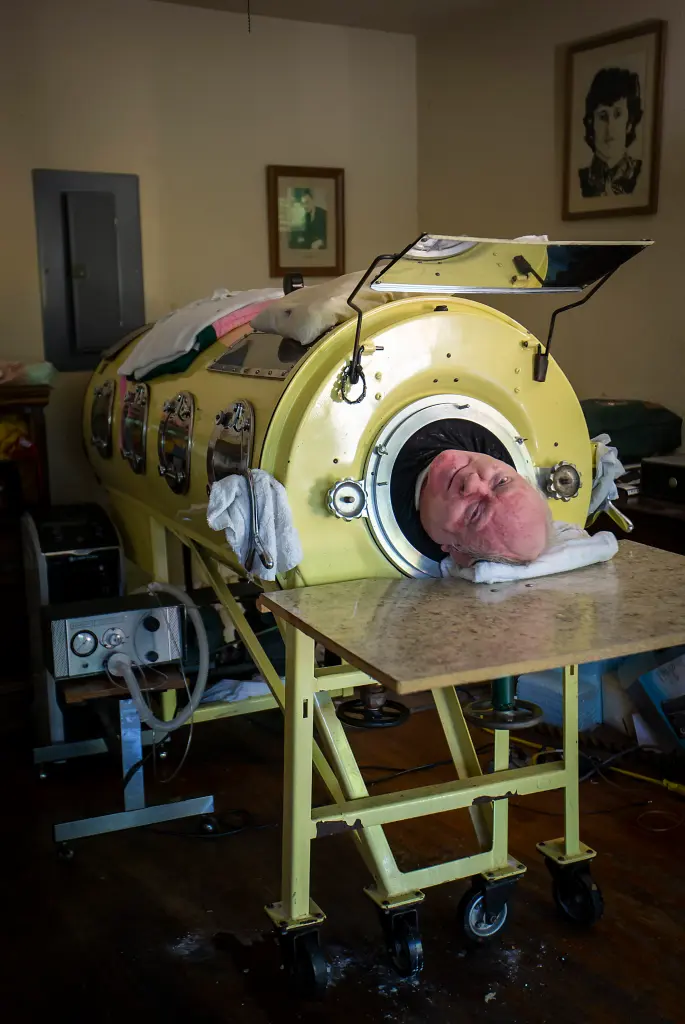
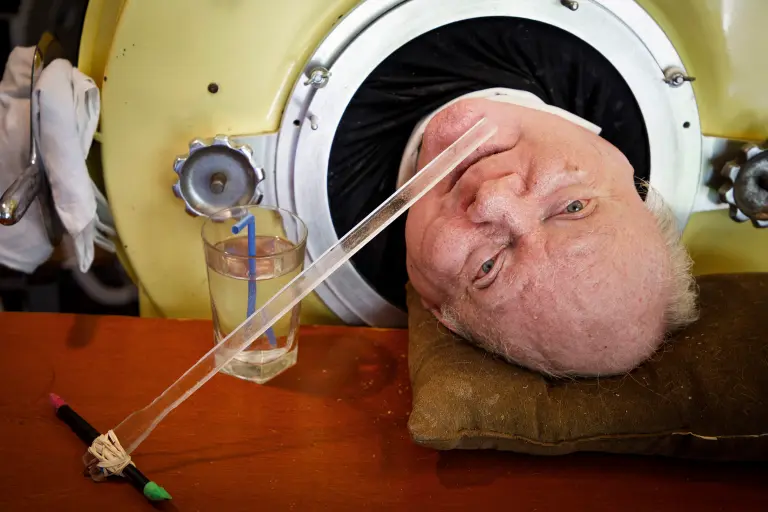
Alexander contracted polio in 1952, when he was 6 years old and living with his family in suburban Dallas.
“I lost everything: the ability to move, my legs would not hold me up and then I couldn’t breathe,” he once recalled in a video shared by Reuters.
The youngster was rushed to the hospital and placed in an iron lung, in which he would remain for the rest of his life.
The iron lung is an airtight capsule that sucks oxygen through negative pressure, allowing the lungs to expand and the patient to breathe, Medscape reports. The contraption is large and cumbersome and requires the person using it to lay fastened inside.
Ventilators — which were invented in the 1920s — lined hospital wards amid polio outbreaks that plagued the US until the second half of the last century.
In 1959, 1,200 Americans relied on an iron lung to stay alive, but the machines gradually became less common following widespread distribution of the polio vaccine. In 1979, the US was declared polio-free, and by 2014, there were only 10 Americans left using an iron lung.
In March of last year, Guinness World Records declared Alexander the longest iron lung patient ever.
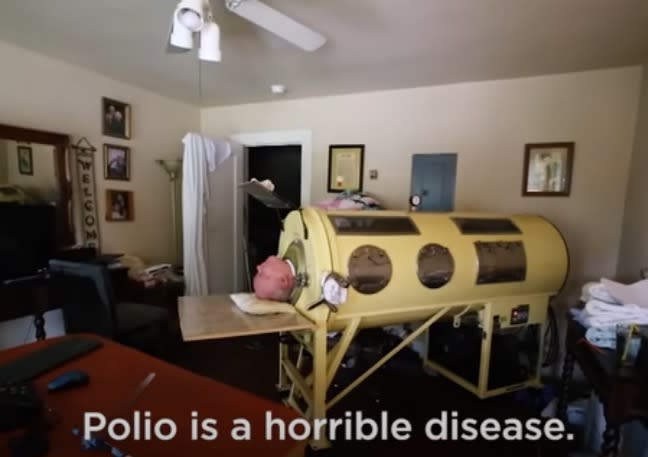
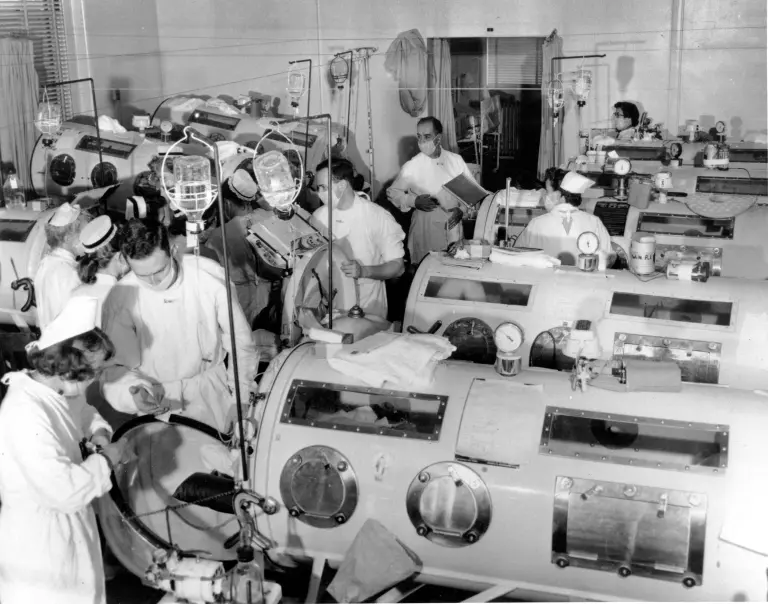
Alexander defied doctors’ expectations by obtaining a law degree and starting his own legal practice, all while confined to the clunky contraption.
In 2020, he published his memoir, “Three Minutes for a Dog: My Life in an Iron Lung,” which took five years to complete, given that he wrote the manuscript from the iron lung.
He used a pen attached to a stick held in his mouth to write every word of the tome.

